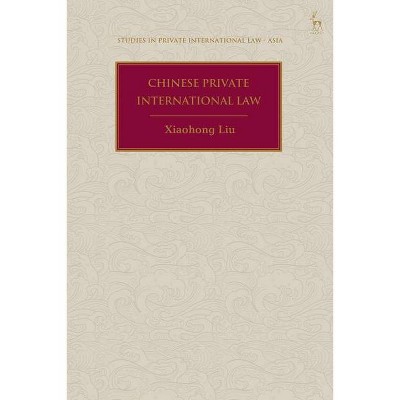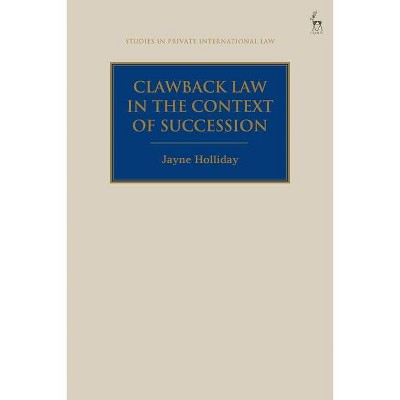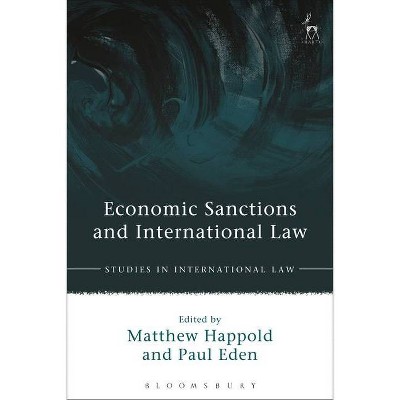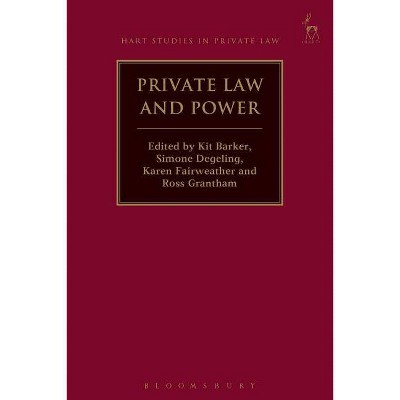Rethinking Judicial Jurisdiction in Private International Law - (Studies in Private International Law) by Milana Karayanidi (Hardcover)
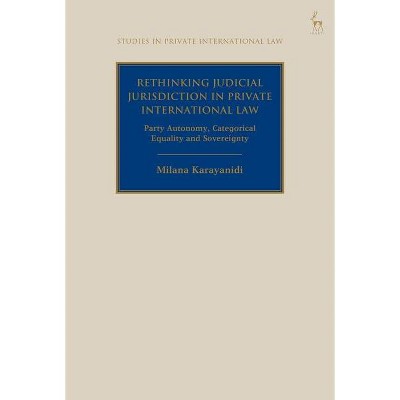
Similar Products
Products of same category from the store
AllProduct info
<p/><br></br><p><b> About the Book </b></p></br></br>"This book explores the theory and practice of judicial jurisdiction within the field of private international law. It offers a revised look at values justifying the power of courts to hear and decide cross-border disputes, and demonstrates that a re-conceptualisation of jurisdiction is needed. Rather than deriving from the territorial power of the states, jurisdiction in civil and commercial cross-border matters ought to be driven by party autonomy. This autonomy can be limited by certain considerations of equality and critical state sovereign interests. The book applies this normative view to the existing rules of jurisdiction in the European Union, the common law, and the Russian Federation. These regimes are chosen due to their unique positions towards values in private international law and contrasting societal norms that generate and accommodate these values. Notwithstanding disparate cultural and political ideas, these regimes reveal a surprising level of consistency when it comes to enforcement of party autonomy. There is, nevertheless, room for improvement. Therefore, the book demonstrates to scholars, policy makers and lawmakers that jurisdiction should be re-centred around the interests of private actors, and proposes ways to improve the current rules"--<p/><br></br><p><b> Book Synopsis </b></p></br></br>This book explores the theory and practice of judicial jurisdiction within the field of private international law. It offers a revised look at values justifying the power of courts to hear and decide cross-border disputes, and demonstrates that a re-conceptualisation of jurisdiction is needed. Rather than deriving from territorial power of states, jurisdiction in civil and commercial cross-border matters ought to be driven by party autonomy. This autonomy can be limited by certain considerations of equality and critical state sovereign interests. <br/><br/>The book applies this normative view to the existing rules of jurisdiction in the European Union and the Russian Federation. These regimes are chosen due to their unique positions towards values in private international law and contrasting societal norms that generate and accommodate these values. Notwithstanding disparate cultural and political ideas, these regimes reveal a surprising level of consistency when it comes to enforcement of party autonomy. There is, nevertheless, room for improvement. The book demonstrates to scholars, policy makers and lawmakers that jurisdiction should be re-centred around the interests of private actors, and proposes ways to improve the current rules.<p/><br></br><p><b> About the Author </b></p></br></br>Milana Karayanidi, PhD (Trinity College Dublin), LLM (Harvard Law School) is an attorney licensed in New York with an application for a Special Legal Consultant pending with the District of Columbia Bar.
Price History
Cheapest price in the interval: 100 on November 8, 2021
Most expensive price in the interval: 100 on December 22, 2021
Price Archive shows prices from various stores, lets you see history and find the cheapest. There is no actual sale on the website. For all support, inquiry and suggestion messagescommunication@pricearchive.us
